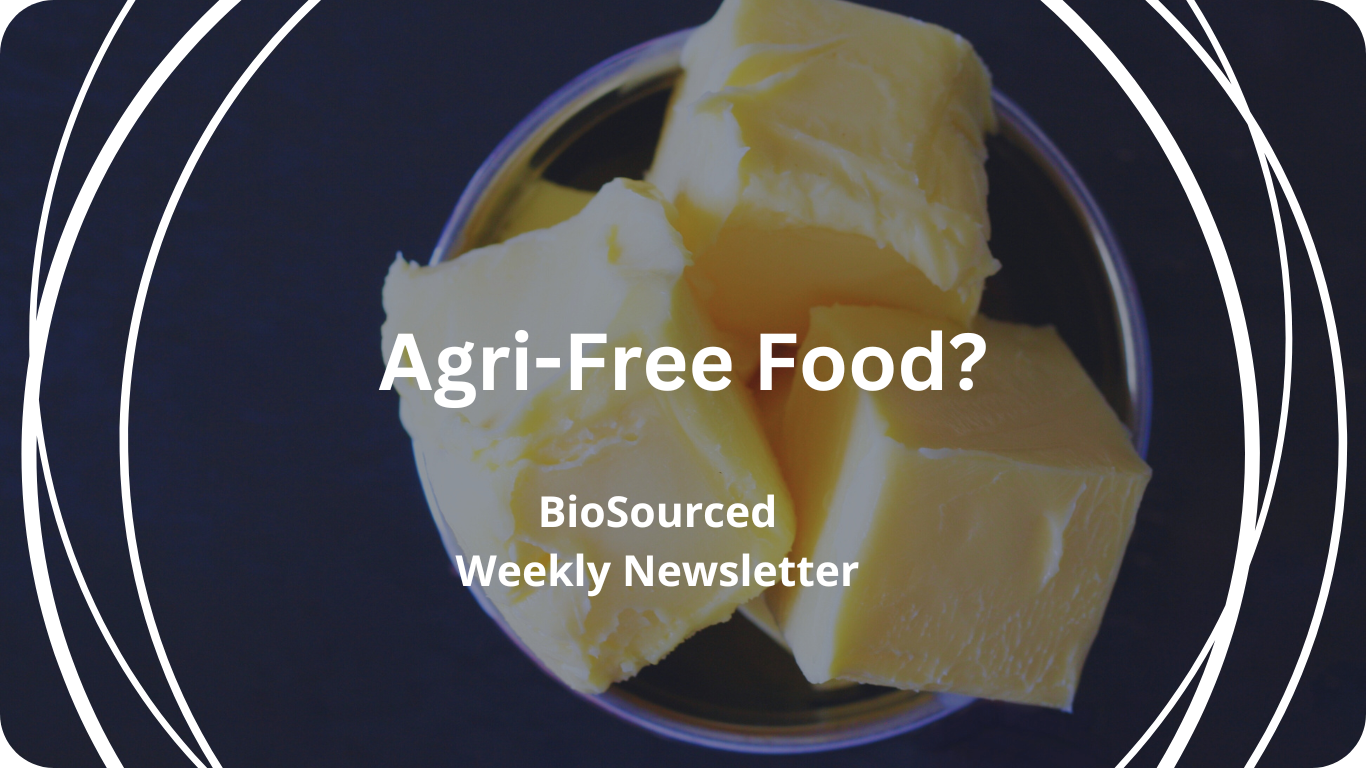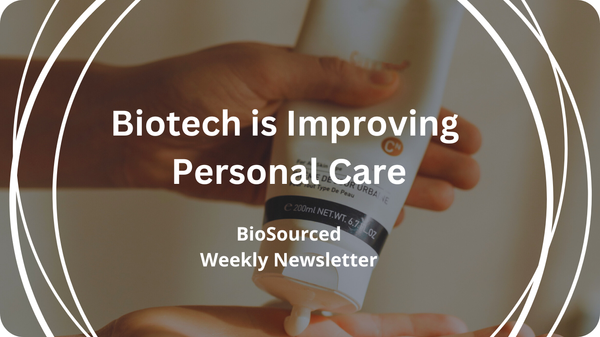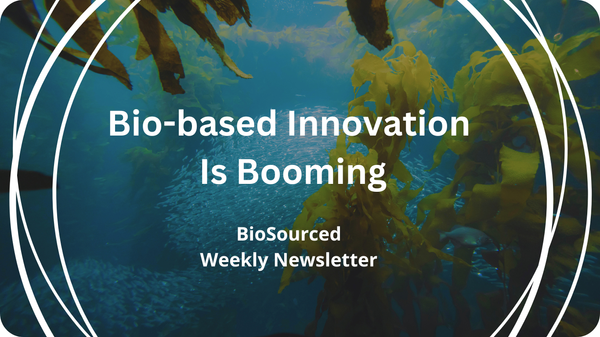Is the Future of Food Agriculture-Free?
Plus: latest product releases, market insights, opportunities for innovators and plenty of links

With animal agriculture responsible for about 14.5% of global greenhouse gas emissions, some researchers believe phasing it out could stabilize GHG levels for 30 years and offset up to 68% of CO₂ emissions this century.
Sound far-fetched? Maybe not. A growing number of innovators are sidestepping traditional agriculture altogether—using fungi, yeast, kelp, or even thin air to make food. This month’s updates show just how close we’re getting to a future where your burger or butter has never seen a farm.
🆕Product Developments
🧈 Dairy, but no cow – Savor’s Carbon Butter
American food-tech company Savor has unveiled a plant- and animal-free butter made from captured carbon. The product is chemically identical to its dairy counterpart with one exception: it skips conventional agriculture entirely, saving water, land, and animals.
The result? A climate-positive fat that could replace resource-intensive palm oil and dairy in one go, with the added bonus of sequestering carbon during its production phase.
More food made out of thin air:
🍶 Best Ingredient Innovation 2025 – AngeoPro Yeast Protein
Despite a record number of entries, the Chinese biotech giant Angel Yeast took home the “Best Ingredient Innovation” title at the 2025 World Food Innovation Awards for AngeoPro.
The fermented protein stood out for its nutritional qualities, environmental impact and neutral taste, making it ideal for anything from sports nutrition to dairy alternatives. Not only does it boast a complete amino acid profile, its resource-efficient fermentation process also requires less land, energy and water compared to conventional proteins.
Alternative proteins are taking over the global F&B stage:
🌊 Sugar Kelp Beer – For Great Taste and Marine Health
Seattle-based Fair Isle Brewing, in collaboration with regenerative aquaculture company Blue Dot Sea Farms, has launched Salacia, a saison-style beer brewed with sugar kelp from Washington’s Hood Canal.
This seaweed requires no fertilizers, freshwater, or pesticides—and even helps sequester carbon and support marine biodiversity. A portion of sales supports marine science through the American Academy of Underwater Sciences.
📈 Expansions
🍄Scaling Mycelium products – Ecovative’s New Funds
New York-based Ecovative just secured $11M to expand its mycelium-based products, with a focus on its spinoff brand MyForest Foods and flagship product MyBacon. The alternative protein is currently available in 45 states and over 1,200 stores, and reportedly outperforms other plant-based breakfast options by 3x.
Apart from supporting further expansion, the recently acquired funds will enhance packaging capabilities, new product developments, and the launch of a food science lab.
More on the cultivated front
📊 Market & Policy
📉 Alt-Protein Market Projections Keep Climbing
Coherent Market Insights estimates a $29.12 billion market by 2032, with a 7.4% CAGR from 2025 to 2032. The report dives into segmentation by source (plant, insect, microbial, cultivated), use cases, and regional demand patterns.
Are we facing a food waste and cost crisis?
🌱 Opportunities
UNESCO & Nestlé – Joining Forces to Empower Yout Youth Impact Program
Young changemakers aged 18–30 are invited to pitch food system solutions through Youth Impact: Because You Matter, a joint initiative from UNESCO and Nestlé. The program includes an $8,500 grant, expert mentorship, and global exposure.
⏰ Apply by: April 8, 2025
🔬 GFI (non-profit, global) – $3.5M Research Grants for Alt Proteins
The Good Food Institute is funding (up to $3.5 million) open-access research in:
- 🧫 Fermentation-derived ingredients to improve taste, cost, and nutrition of plant-based meats
- 🧪 Cell line development for cultivated meat (including fish and crustaceans). New researchers are encouraged to apply, with bonus funding available.
⏰ Apply by: May 15, 2025
The rise of agriculture-free food raises as many questions as it answers.
On one hand, these innovations could dramatically cut emissions, preserve biodiversity, and transform food equity. On the other, they prompt deeper conversations around:
- 🌾 The role of traditional farmers in a tech-heavy future
- 🧪 Transparency and health of synthetic or ultra-processed alternatives
- 🤝 Ensuring access to these foods isn't limited to wealthy nations or urban elites
We’re not just witnessing a shift in ingredients—we're witnessing a potential rewiring of the entire food system. The key will be keeping people and planet at the center of the table.
Curious about collaborating, sponsoring, or getting your product featured in Bio Sourced? Let’s talk.
Until next time,
Nina Purton 🌿





